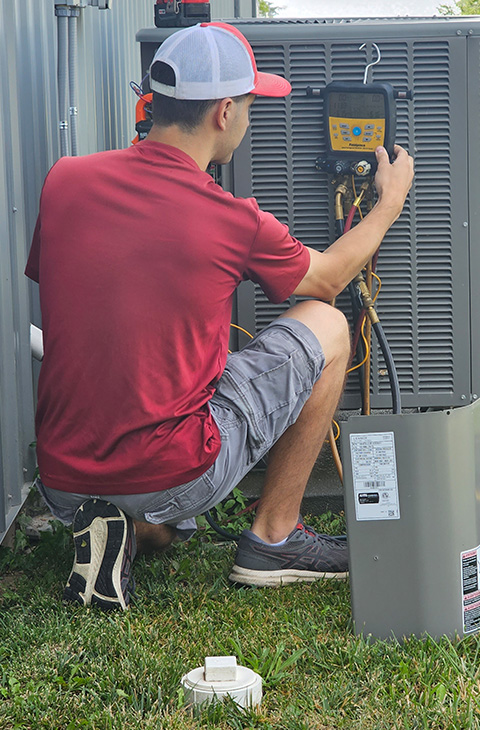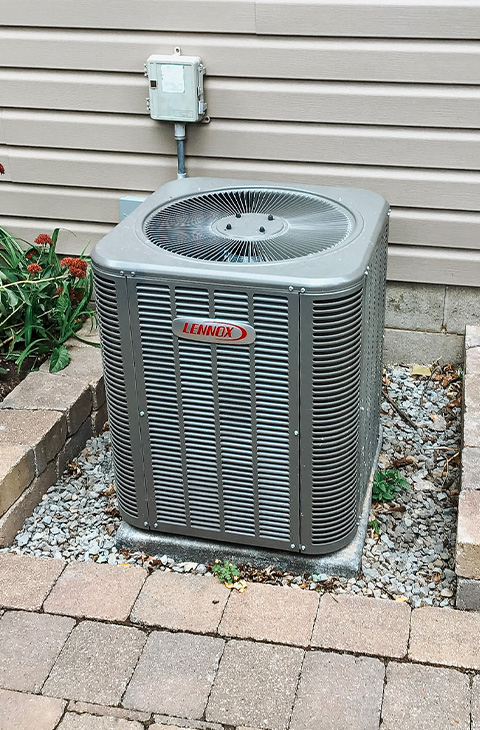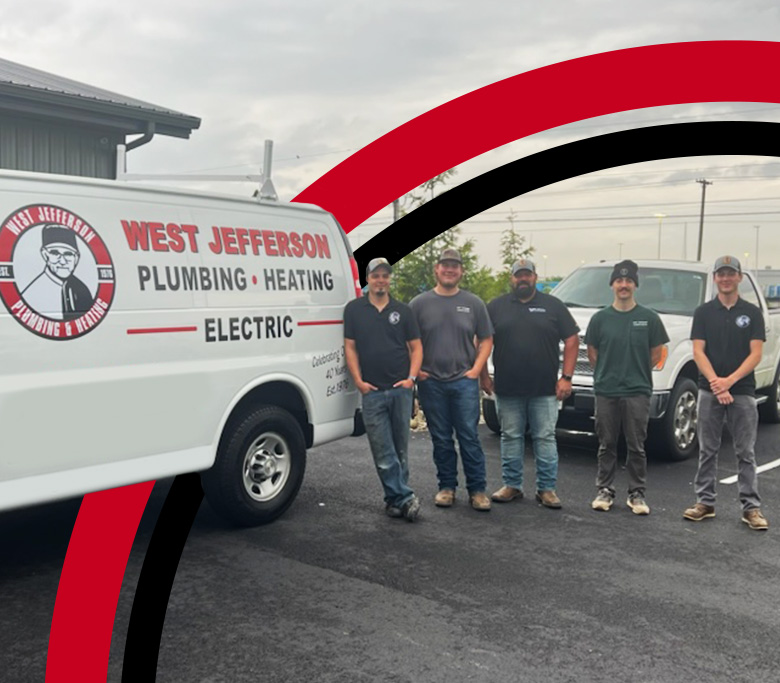

Columbus HVAC Services
Also Serving West Jefferson, Westerville, Dublin, Springfield, and the Surrounding Areas
West Jefferson Plumbing and Heating, Inc. has been proudly serving the Columbus area since 1976. As a three-generation family business, we’ve built a legacy of trust by delivering quality work and prioritizing customer relationships. With decades of hands-on experience, our team knows how to handle everything from standard HVAC solutions to custom installations in high-end homes. Our technicians are certified by NATE (North American Technician Excellence). Homeowners know they can count on us for reliable service, backed by a strong warranty.
Our HVAC services include:
Call (740) 318-2868 today.


Services Backed by Generations of Know-How
Creating a Healthy Living Space with Our HVAC Solutions
When it comes to creating a healthy and comfortable home, the way you approach heating, cooling, and air quality plays a critical role. Many people think of their HVAC system just as a tool for temperature control, but with the right setup, it can do so much more. By integrating heating and cooling solutions with air quality technology, you can transform your home into a haven of comfort and wellness.
An effective HVAC system facilitates consistent and balanced temperatures throughout every room. An inefficient system can sometimes lead to hot or cold spots, which makes certain areas uncomfortable and forces your system to work harder, increasing your energy bills and wear and tear on the equipment.
With advanced heating and cooling technologies, you can manage your home’s climate more effectively. Zoning systems, for example, allow you to control the temperature in specific areas instead of your entire home, helping you save energy and keep everyone comfortable. Pairing this with energy-efficient equipment like geothermal systems further reduces costs while offering smarter and more sustainable climate control.
The Hidden Impact of Indoor Air Quality
Air quality is often overlooked, but its effect on personal health is undeniable. Poor indoor air can aggravate allergies, asthma, and other respiratory issues, especially during peak pollen seasons or in older homes with dust and mold buildup. Your HVAC system can actually act as the first line of defense against these hazards when equipped with the right air purification tools.
HEPA filters, UV light filtration systems, and whole-house air purifiers all integrate into modern HVAC units to remove pollutants, allergens, and even bacteria from the air. An innovative HVAC system upgrades not only your comfort but also helps everyone in your home breathe easier, whether they’re kids with allergies or older adults more susceptible to airborne irritants.
Humidity Control for Comfort and Health
Humidity is another key part of your home infrastructure that works hand in hand with HVAC systems. Too much humidity can lead to mold and mildew growth, while too little can result in dry skin, irritated airways, and even cracked wood furniture. Integrated humidifiers and dehumidifiers allow your home to maintain ideal moisture levels year-round. This isn’t just about avoiding discomfort--it’s also about protecting your home’s structural integrity and preserving long-term health.
A Holistic HVAC Picture
Taking an integrated approach to heating, cooling, and air quality provides comfort, enhances energy efficiency, minimizes environmental impact, and contributes to family health. A well-designed HVAC system acts like the lungs of your home, moving, filtering, and regulating air so that everything feels just right.

Family-Owned. Quality-Focused.
-
Local Experts, Lifelong RelationshipsWe live and work in the same communities we serve, and we’re committed to building lasting relationships with every customer.
-
Quality Work Rooted in Integrity
We stand by our work because we do it right the first time, whether it’s a custom home project or a simple repair. No shortcuts. Just solid service.
-
Big Enough to Respond, Small Enough to CareWe have the team and experience to handle your job quickly, but we’ll always treat you like family—not just another number.
-
Generations of Trusted Service
Since 1976, our family-owned business has proudly served the West Jefferson and greater Columbus area with honest, skilled craftsmanship passed down through three generations.
Serving the Columbus Area
We’re big enough to handle any challenge, yet small enough that you’ll always feel like a priority. We genuinely care about our customers and doing the job right the first time. Our service agreements are there to help your system last a long time. Our flexible financing options make it easier to invest in cutting-edge HVAC solutions without compromising your budget’s stability.
Call (740) 318-2868 or contact us online today.
